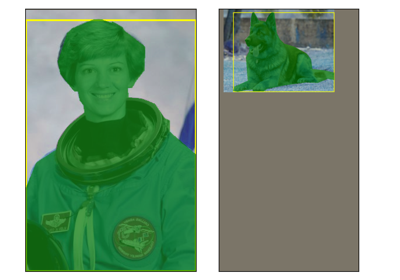SanitizeBoundingBoxes
- class torchvision.transforms.v2.SanitizeBoundingBoxes(min_size: float = 1.0, labels_getter: Optional[Union[Callable[[Any], Any], str]] = 'default')[source]
Remove degenerate/invalid bounding boxes and their corresponding labels and masks.
This transform removes bounding boxes and their associated labels/masks that:
are below a given
min_size: by default this also removes degenerate boxes that have e.g. X2 <= X1.have any coordinate outside of their corresponding image. You may want to call
ClampBoundingBoxesfirst to avoid undesired removals.
It can also sanitize other tensors like the “iscrowd” or “area” properties from COCO (see
labels_getterparameter).It is recommended to call it at the end of a pipeline, before passing the input to the models. It is critical to call this transform if
RandomIoUCropwas called. If you want to be extra careful, you may call it after all transforms that may modify bounding boxes but once at the end should be enough in most cases.- Parameters:
min_size (float, optional) –
labels_getter (callable or str or None, optional) –
indicates how to identify the labels in the input (or anything else that needs to be sanitized along with the bounding boxes). By default, this will try to find a “labels” key in the input (case-insensitive), if the input is a dict or it is a tuple whose second element is a dict. This heuristic should work well with a lot of datasets, including the built-in torchvision datasets.
It can also be a callable that takes the same input as the transform, and returns either:
A single tensor (the labels)
A tuple/list of tensors, each of which will be subject to the same sanitization as the bounding boxes. This is useful to sanitize multiple tensors like the labels, and the “iscrowd” or “area” properties from COCO.
If
labels_getteris None then only bounding boxes are sanitized.
Examples using
SanitizeBoundingBoxes:
Transforms v2: End-to-end object detection/segmentation example
Transforms v2: End-to-end object detection/segmentation example- forward(*inputs: Any) Any[source]
Define the computation performed at every call.
Should be overridden by all subclasses.
Note
Although the recipe for forward pass needs to be defined within this function, one should call the
Moduleinstance afterwards instead of this since the former takes care of running the registered hooks while the latter silently ignores them.

